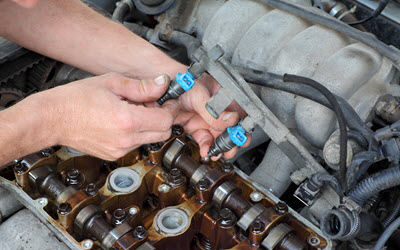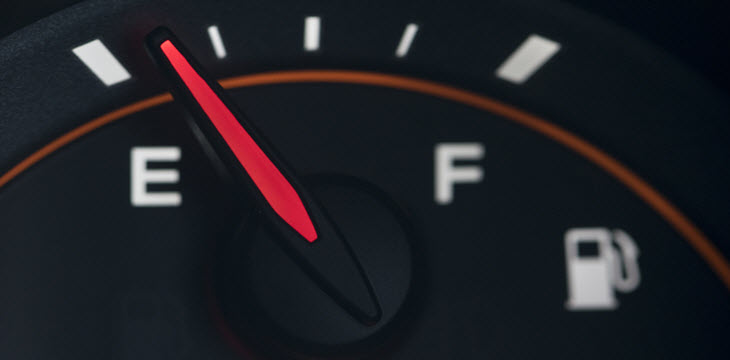A Volkswagen is a great car that offers many perks. Like all vehicles, if it is not properly maintained, it can lead to many problems, including reduced gas mileage. There are several potential reasons why your Volkswagen might be using up more fuel than normal. In this article, we’re going to walk you through some of the biggest ones as well as give advice on how to fix this issue.
Your Choices Affect Fuel Economy
Out of the possible reasons why you may be taking your Volkswagen to the pump more often, some may have to do with the choices you make when driving or refueling your car. Luckily, these can be fixed by simply adjusting your habits. Examples of these include:
Driving with a lead foot
This can lead to a decrease in fuel economy, because driving at a higher speed and pressing down hard on the gas requires the engine to consume fuel at a much faster rate to keep up with demand. In order to ensure optimal gas mileage, it’s better to accelerate more gradually.
Using the wrong octane of gasoline
Of course, many of us like to save money wherever possible, so you may automatically default to buying regular unleaded fuel when refilling your Volkswagen. But depending on the car’s model year, that may not be the recommended choice. Many of the Volkswagen models made before 2016 require premium unleaded for the best performance. If you’re unsure, it’s best to check your owner’s manual to see the manufacturer’s recommendation.
Constant stopping and starting
If you live in a city with a lot of traffic, this may be unavoidable. However, if you tend to follow very close behind other drivers on the road, you’re likely to have frequent, sudden stops followed by quick accelerations. This causes the engine to use up far more fuel than it would if you drove at a constant speed. If possible, try to keep more distance between you and the car in front of you to avoid decreasing your car’s performance.
Other Issues That Can Cause Low Gas Mileage
Not all of the reasons behind low fuel economy are so easily fixed or avoided. Some have nothing at all to do with your choices as the owner of the car and are simply due to malfunctioning parts or natural wear and tear.
To repair these problems, you will most likely have to take your vehicle to a professional mechanic. Here is an incomplete list of some common possibilities:
Fuel Injector Failure
A computer known as an ECU (Engine Control Unit) monitors the air-fuel ratio inside the engine and decides how much fuel to inject. However, trouble with the fuel injectors can cause too much or too little gas to be injected, both of which lead to lower gas mileage.
MAF Sensor Failure
This is one of the many sensors that tells the ECU what conditions are like inside the car’s engine. If it is sending incorrect information or not reading anything at all, the ECU will have to guess at how much fuel to inject, resulting in inefficient fuel usage.
Tire Problems
You may not think that tires could be a reason for bad fuel economy, but having worn down, unevenly inflated, or misaligned tires causes the car to be unbalanced. This means that there will be greater resistance between the pavement and your tires, forcing the engine to use more fuel to maintain the same speed.
It’s important to regularly check your tire pressure on all your tires, even if you don’t see the low tire pressure warning light on the dash. Often, this light only comes on when there is a significant dip in pressure, so your tires could be several PSI less than recommended without your knowledge.
Das European Autohaus for Expert Help
If you’re a Volkswagen owner  in the Spring or Houston, Texas area and you’re having trouble with your vehicle’s gas mileage or anything else, the trained technicians at Das European Autohaus are here to help.
in the Spring or Houston, Texas area and you’re having trouble with your vehicle’s gas mileage or anything else, the trained technicians at Das European Autohaus are here to help.
Our mechanics have decades of experience working with European imports like Volkswagen, Audi, MINI, and others. If you’d like to learn more, feel free to reach out and discover our outstanding service for yourself. Call us today.

